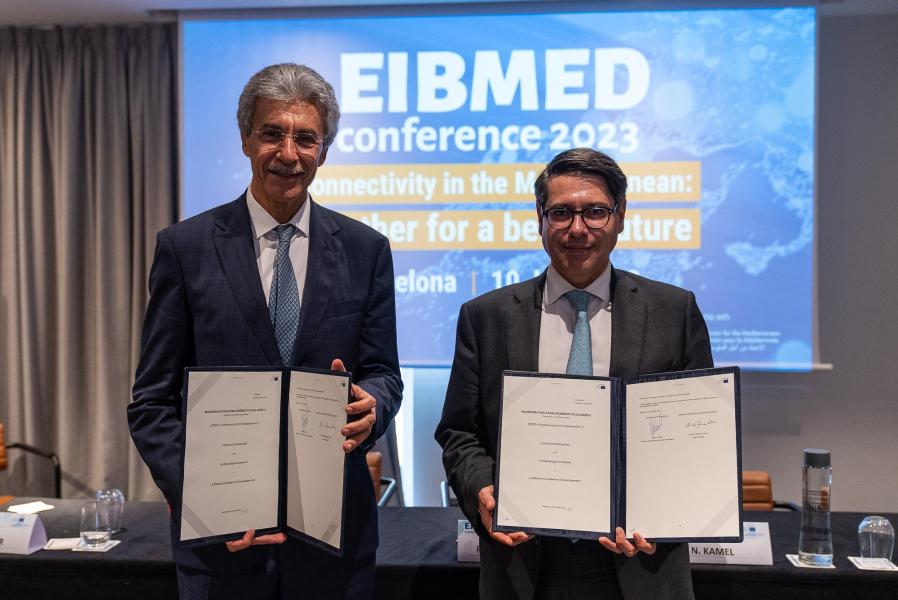
On Monday, 10 July on the sidelines of the EIB MED Conference, Tunisian Minister of Economy and Planning Samir Saïed and European Investment Bank (EIB) Vice-President Ricardo Mourinho Félix signed a €40 million financing agreement (TND 132 million) to build 80 modern primary schools in Tunisian coastal towns and in central and southern areas of the country. This financing, which follows on from an earlier programme to modernise secondary schools, is part of EIB Global, the arm of the EIB devoted to international partnerships and development finance.
It reflects the EIB’s strong commitment to supporting the Tunisian government in its efforts to tackle school dropouts and reduce the rate of pupils repeating a year, and to ensure inclusive and equitable education.
This project is the result of close collaboration between the Tunisian Ministry of Education and the European Union (EU). It aims to improve learning and teaching conditions for 14 500 pupils enrolled in primary education, not only by building new primary schools, but also by purchasing school transport and digitalising schools.
These new schools will be built in line with bioclimatic and energy-saving design principles, in particular through the installation of solar panels.
This financing is fully in line with EU priorities for Tunisia and the Agenda for the Mediterranean. It benefits from an EU guarantee under the Neighbourhood, Development and International Cooperation Instrument (NDICI — Global Europe), as well as a €25 million EU grant under the Neighbourhood Investment Platform (NIP).
After signing the agreement, Saïed said that “the financing signed for the Ministry of Education is part of the Tunisian government’s efforts to strengthen inclusive education and to reduce school dropouts. This project demonstrates Tunisia’s willingness and commitment to ensuring a better future for its young people.”
The Ambassador of the European Union to Tunisia Marcus Cornaro stressed that “education is one of the pillars of our cooperation with Tunisia, with the common objective of providing a high-quality and inclusive education system for every child in the country. Through the school modernisation programme, the European Union in Tunisia is committed to supporting learning in a healthy, safe, environmentally friendly and connected school environment, so that the adults of tomorrow are capable of building a better future for themselves. Brick by brick, the house is being built — and we are building it together.”
Mourinho Félix said that “supporting the development of a high-quality learning environment and improving educational spaces is a major priority for the EIB. We are proud to support the Tunisian government in ensuring a better education for young Tunisians. For the EIB, investing in education is a way to enable people to contribute to sustainable development.”
With the support of the EIB, the first phase of the school modernisation programme began in 2017 with the aim of modernising secondary schools. As part of this, 256 schools have already been refurbished (with 124 refurbishment projects currently under way) and 21 new schools have been built (with 36 in the process of being built). Overall, 21 500 school places have been created.
EIB Global is the EIB Group’s specialised arm devoted to increasing the impact of international partnerships and development finance. It is designed to foster strong, focused partnership within Team Europe, alongside fellow development finance institutions and civil society. EIB Global brings the Group closer to local people, companies and institutions through our offices across the world.